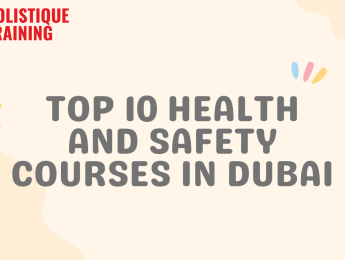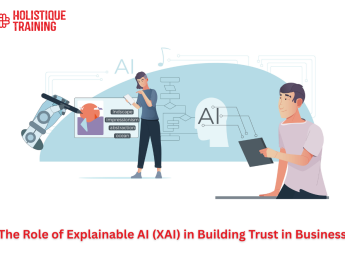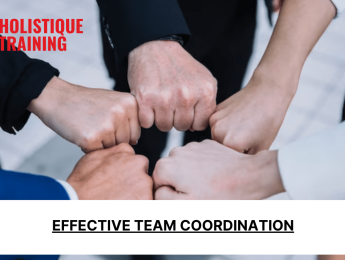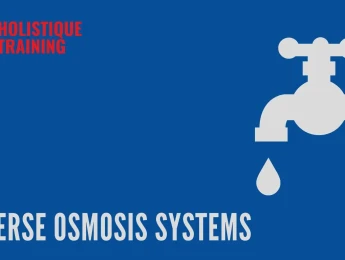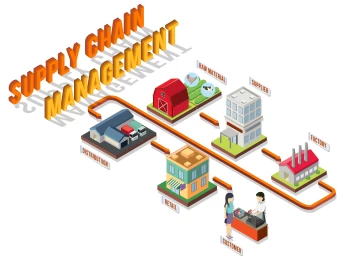- Table of Contents
- 1. NEBOSH International General Certificate (IGC) in Occupational Health and Safety
- 2. IOSH Managing Safely
- 3. OSHA 30-Hour General Industry Training
- 4. HABC Level 2 International Award in Emergency First Aid at Work
- 5. ISO 45001:2018 Lead Auditor Training
- 6. Fire Safety and Risk Management Course
- 7. Confined Space Entry Training
- 8. Manual Handling Training
- 9. Advanced Incident Investigation
- 10. Masterclass In Healthcare Management Holistique Training
Introduction
Health and safety in the workplace are critical aspects that ensure the well-being of employees and the smooth functioning of organizations. Effective health and safety management involves identifying potential hazards, implementing preventative measures, and fostering a culture of safety awareness. This not only reduces the risk of accidents and injuries but also promotes productivity and morale. Comprehensive health and safety training equips individuals with the necessary knowledge and skills to manage risks and respond effectively to emergencies, ensuring a safe and compliant work environment.
1. NEBOSH International General Certificate (IGC) in Occupational Health and Safety
Summary: The NEBOSH IGC covers a wide range of health and safety topics, including risk management, health and safety legislation, and workplace hazards.
Duration: 10 days
Language: English
Level: Intermediate
- What does a NEBOSH IGC Course teach you?
- It teaches essential health and safety principles, risk assessment, hazard control, and safety management systems.
- Who should take the NEBOSH IGC course?
- It is suitable for managers, supervisors, and employees responsible for health and safety in their organizations.
- Why should take the NEBOSH IGC course?
- It provides a comprehensive understanding of health and safety practices, enhancing career prospects and ensuring workplace safety compliance.
2. IOSH Managing Safely
Summary: IOSH Managing Safely is designed to provide managers and supervisors with the knowledge and skills to manage health and safety in their teams effectively.
Duration: 4 days
Language: English
Level: Beginner to Intermediate
- What does an IOSH Managing Safely Course teach you?
- It covers risk assessment, accident investigation, safety management systems, and performance measurement.
- Who should take the IOSH Managing Safely course?
- It is ideal for managers, supervisors, and team leaders in any sector.
- Why should take the IOSH Managing Safely course?
- It equips leaders with practical tools to manage health and safety, ensuring compliance and promoting a safe work environment.
3. OSHA 30-Hour General Industry Training
Summary: This course provides a thorough understanding of OSHA standards and regulations, focusing on hazard identification, prevention, and mitigation in general industry.
Duration: 4 days (30 hours)
Language: English
Level: Beginner to Intermediate
- What does an OSHA 30-Hour General Industry Course teach you?
- It covers OSHA regulations, hazard recognition, safety standards, and best practices for maintaining a safe workplace.
- Who should take the OSHA 30-Hour General Industry course?
- It is suitable for safety managers, supervisors, and employees in general industry sectors.
- Why should take the OSHA 30-Hour General Industry course?
- It helps in understanding and complying with OSHA standards, reducing workplace accidents and enhancing safety culture.
4. HABC Level 2 International Award in Emergency First Aid at Work
Summary: This course provides the essential skills and knowledge required to manage emergency first aid situations in the workplace.
Duration: 1 day
Language: English
Level: Beginner
- What does a HABC Level 2 Emergency First Aid at Work Course teach you?
- It teaches how to provide immediate first aid to injured or ill individuals, including CPR and wound treatment.
- Who should take the HABC Level 2 Emergency First Aid at Work course?
- It is ideal for employees designated as first aiders in their workplace.
- Why should take the HABC Level 2 Emergency First Aid at Work course?
- It prepares individuals to respond effectively to workplace emergencies, potentially saving lives and reducing injury severity.
5. ISO 45001:2018 Lead Auditor Training
Summary: This course provides in-depth knowledge of auditing principles and techniques based on the ISO 45001:2018 standard for occupational health and safety management systems.
Duration: 5 days
Language: English
Level: Advanced
- What does an ISO 45001:2018 Lead Auditor Course teach you?
- It covers auditing principles, ISO 45001 requirements, and how to conduct and manage audits effectively.
- Who should take the ISO 45001:2018 Lead Auditor course?
- It is suitable for auditors, HSE managers, and consultants responsible for occupational health and safety management systems.
- Why should take the ISO 45001:2018 Lead Auditor course?
- It enhances auditing skills, ensuring compliance with international standards and improving organizational safety performance.
6. Fire Safety and Risk Management Course
Summary: This course focuses on fire safety principles, risk assessment, and emergency response planning to prevent and manage fire-related incidents.
Duration: 3 days
Language: English
Level: Intermediate
- What does a Fire Safety and Risk Management Course teach you?
- It covers fire safety legislation, risk assessment, fire prevention, and emergency response strategies.
- Who should take the Fire Safety and Risk Management course?
- It is ideal for fire safety officers, facility managers, and anyone responsible for fire safety in their organization.
- Why should take the Fire Safety and Risk Management course?
- It provides critical knowledge to prevent fire incidents, ensuring compliance with regulations and protecting lives and property.
7. Confined Space Entry Training
Summary: This course provides essential training on safe practices and procedures for working in confined spaces, addressing potential hazards and emergency response.
Duration: 2 days
Language: English
Level: Intermediate
- What does a Confined Space Entry Course teach you?
- It covers confined space hazards, risk assessment, entry procedures, and emergency response.
- Who should take the Confined Space Entry course?
- It is suitable for workers, supervisors, and safety professionals involved in confined space operations.
- Why should take the Confined Space Entry course?
- It ensures safe work practices in confined spaces, reducing the risk of accidents and enhancing worker safety.
8. Manual Handling Training
Summary: This course teaches safe manual handling techniques to prevent injuries related to lifting, carrying, and moving objects in the workplace.
Duration: 1 day
Language: English
Level: Beginner
- What does a Manual Handling Course teach you?
- It covers proper lifting techniques, risk assessment, and injury prevention related to manual handling tasks.
- Who should take the Manual Handling course?
- It is suitable for all employees involved in manual handling activities.
- Why should take the Manual Handling course?
- It reduces the risk of musculoskeletal injuries, promoting a safer work environment.
9. Advanced Incident Investigation
Summary: This course provides advanced techniques for investigating workplace incidents, identifying root causes, and implementing corrective actions to prevent recurrence.
Duration: 3 days
Language: English
Level: Advanced
- What does an Advanced Incident Investigation Course teach you?
- It covers incident investigation methodologies, root cause analysis, and development of corrective actions.
- Who should take the Advanced Incident Investigation course?
- It is ideal for safety managers, supervisors, and anyone responsible for incident investigation in their organization.
- Why should take the Advanced Incident Investigation course?
- It improves investigation skills, helping to identify and address underlying issues to prevent future incidents.
10. Masterclass In Healthcare Management Holistique Training
Summary: This course emphasizes the importance of effective healthcare facility management, identifying the purpose of each service and the consequences of poor management. It explores common challenges, internal and external influences, and the sector's history and future. The course also teaches coordination and alignment of departments to maintain productivity and quality.
Duration: 5 days
Language: English
Level: Advanced
What does a Masterclass in Healthcare Management Course teach you?
- It teaches the importance of effective management in healthcare facilities, identification of each service's purpose, consequences of poor management, common challenges, and coordination of departments for maintaining productivity and quality. It also covers the history and potential future evolution of the healthcare sector.
Who should take the Masterclass in Healthcare Management course?
- This course is ideal for healthcare managers, administrators, and professionals in leadership roles who are responsible for overseeing the operations and management of healthcare facilities.
Why should take the Masterclass in Healthcare Management course?
- Taking this course enhances your ability to manage healthcare facilities effectively, addresses common challenges, and ensures that departments work cohesively. It ultimately improves productivity, quality, and patient outcomes while providing insights into the evolving healthcare landscape.
Table: Summary of Top 10 Health and Safety Courses in Dubai
Course Name | Duration | Language | Level |
NEBOSH International General Certificate (IGC) | 10 days | English | Intermediate |
IOSH Managing Safely | 4 days | English | Beginner to Intermediate |
OSHA 30-Hour General Industry Training | 4 days | English | Beginner to Intermediate |
HABC Level 2 International Award in Emergency First Aid at Work | 1 day | English | Beginner |
ISO 45001:2018 Lead Auditor Training | 5 days | English | Advanced |
Fire Safety and Risk Management Course | 3 days | English | Intermediate |
Confined Space Entry Training | 2 days | English | Intermediate |
Manual Handling Training | 1 day | English | Beginner |
Advanced Incident Investigation | 3 days | English | Advanced |
Masterclass in Healthcare Management | 5 days | English | Advanced |


